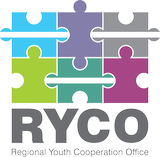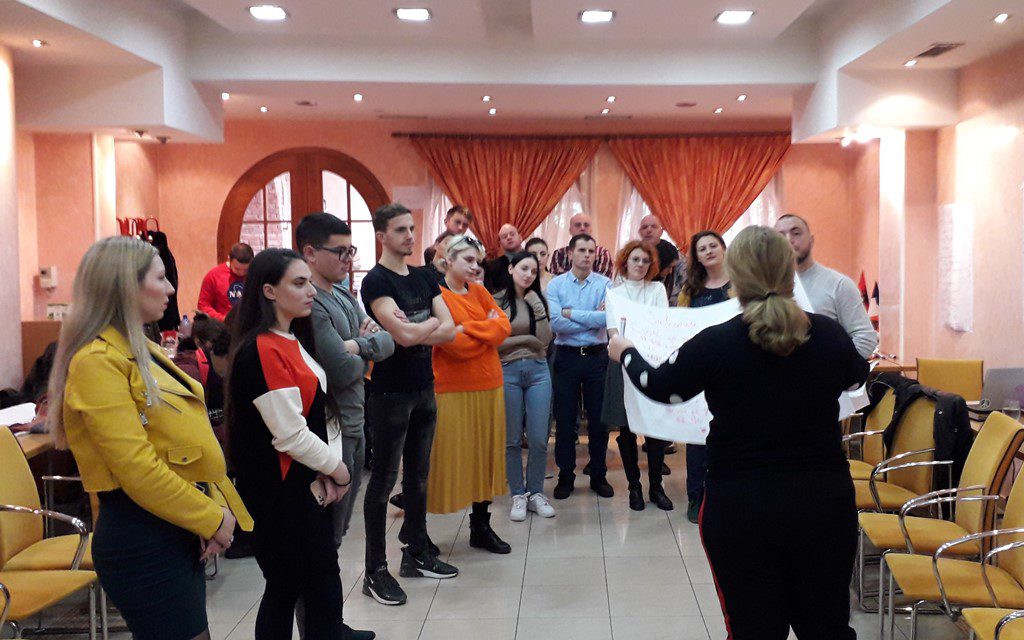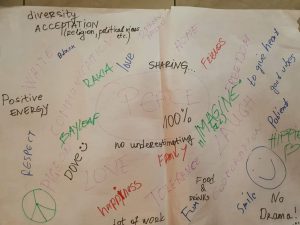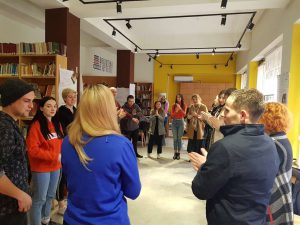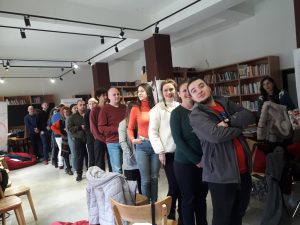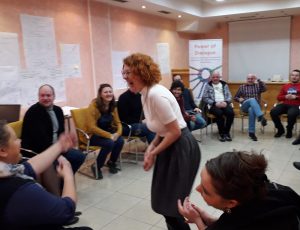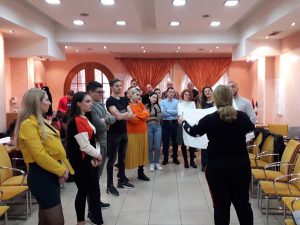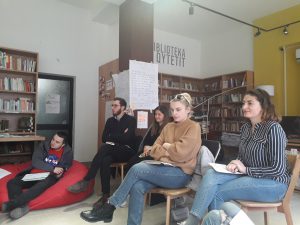ALBANIA/KOSOVO/NORTH MACEDONIA/SERBIA – Supported by RYCO and the United Nations Peacebuilding Fund through the second RYCO Open Call for Project Proposals, Projekte Vullnetare Ndërkombëtare (PVN) in Albania, in partnership with Dance sport club Kreator Dens in North Macedonia, Innovative Centre for Social Improvement (ICSI) in Kosovo, and AzBuki in Serbia, implemented the project “Power of Dialogue: Intercultural Dialogue as Powerful Instrument for Youth Development and Mobility”.
The project took place from December 2019 to November 2020 and promoted and facilitated intercultural dialogue and tolerance among youth, youth workers and teachers. Moreover, it supported the development of partnerships between youth organizations and schools in the Western Balkans and created new spaces to sustain further regional cooperation on intercultural activities.
During the project, participants took part in local and regional activities which provided them with open spaces to discuss and understand intercultural learning and peacebuilding in the region. Further on, they attended capacity building training where they developed new skills.
“The flow, dynamics and outcomes of the capacity building training among the group were a good indicator to believe in reconciliation in the region. We realized that teachers can bring a good change, but we need to support, motivate and enable them to participate more often in exchange programs across the region, by empowering themselves and young people as key actors who will bring positive changes,” Project Coordinator Ms Oltiana Rama, emphasized.
Empowered and motivated throughout the training, youth workers, teachers and leaders in the project developed a manual on “Understanding and Practicing Intercultural Learning in the field of youth”, as a guiding material which will serve youth, youth workers, interested organizations and schools in the region.
“The manual aims to be a source of tool and information for youth workers, teachers and young people to understand and practice intercultural dialogue and learning. Creating and developing it has been quite an interactive, challenging and productive process as the bases of the manual came from teachers, youth workers and young people who gathered for a week to understand the topic and create tools that they could use in their daily work,” Ms Rama added.
The manual, which is available in Albanian, English, Macedonian and Serbian will equip interested individuals and organizations with deeper knowledge on the conduct of intercultural activities and dialogue, as well as provide them with tools and examples of practicing intercultural learning through non-formal education.
To access and read the manual, please click the links below.
Click here for the manual in Albanian.
Click here for the manual in English.
Click here for the manual in Macedonian.
Click here for the manual in Serbian.
_________
*This designation is without prejudice to positions on status and is in line with UNSCR 1244 and the ICJ Opinion on the Kosovo Declaration of Independence.


